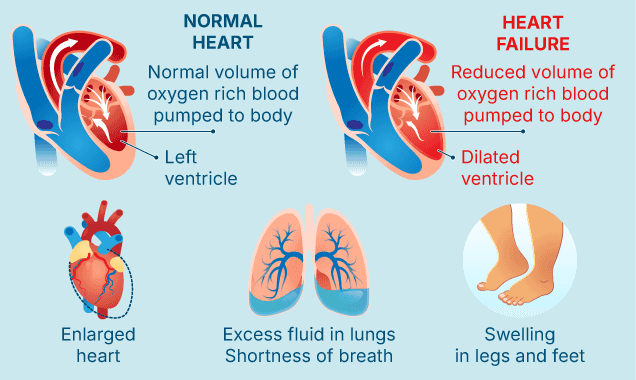
Heart failure
What is heart failure?
What is heart failure?
Heart failure occurs when the heart cannot pump blood well enough to meet the body’s needs. This can lead to fluid buildup and symptoms like shortness of breath and fatigue. It is often caused by conditions that weaken or stiffen the heart muscle, including high blood pressure, blocked arteries, or irregular heart rhythms, such as advanced atrial fibrillation. With the right treatment and lifestyle changes, many people can manage heart failure and live well.

Symptoms
Symptoms of heart failure include swelling in the legs or abdomen, shortness of breath, especially during physical exertion or lying down, fatigue, and rapid or irregular heartbeat. Atrial fibrillation (AFib), a common arrhythmia, can cause the heart to beat too fast or too irregularly, weakening its ability to pump blood effectively. If you experience sudden trouble breathing, chest pain, or fainting, call emergency services.

Causes, Risks & Treatment
Causes, Risks & Treatment
In addition to blocked arteries or high blood pressure, arrhythmias like AFib are major contributors to heart failure. Irregular rhythms force the heart to work inefficiently and may cause long-term damage. Treatment options include medications, lifestyle changes, and devices like pacemakers or implantable defibrillators. In some cases, procedures such as catheter ablation may be necessary to restore proper heart function.

We Care About Your Privacy
Medinice S.A. uses cookies to improve and customize users experience on our website. By selecting 'Accept', you consent to the use of all cookies that gather and use information about your interactions with our site to provide personalized content and enhance your digital experience. Please read our Privacy Policy for more information.